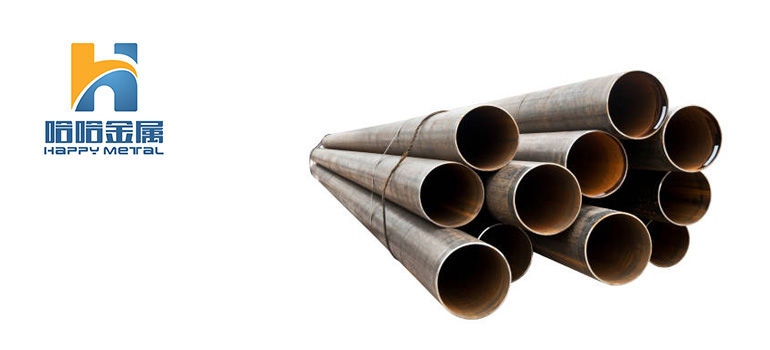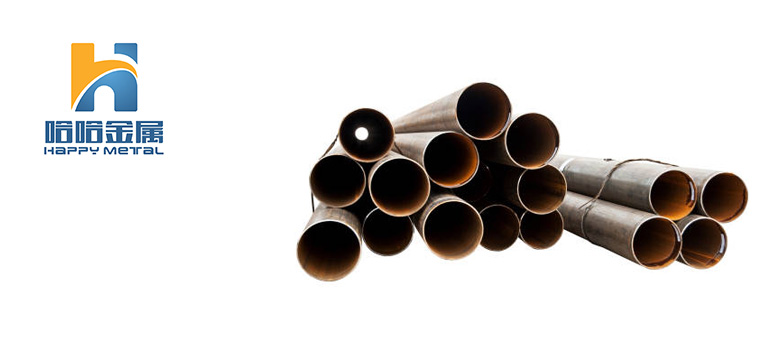Summary:
Understanding the Importance of API 5L Carbon Steel Pipes in Industrial Applications
What are API 5L Carbon Steel Pipes?
Importance of API 5L Carbon Steel Pipes in Industrial Settings
API 5L Carbon Steel Pipe Specifications
Industrial Applications of API 5L Carbon Steel Pipes
API 5L carbon steel pipe is a rigorously designed and tested pipeline with excellent durability and reliability, making them the preferred choice for industrial applications. These pipelines are not only channels for transmitting media, but also links the entire production chain. Whether it’s from crude oil collection to refining, or from natural gas wells to consumers, API 5L carbon steel pipes play a crucial role.
In this section, we will explore the basic concept of API 5L carbon steel pipe, their role in industrial applications, and why they are an indispensable part of modern industry.
What are API 5L Carbon Steel Pipes?

API 5L carbon steel pipe are a type of seamless or welded steel pipes that adhere to the specifications outlined by the American Petroleum Institute (API). These pipes are specifically designed and manufactured for use in conveying gas, water, and oil in both the oil and natural gas industries.
These pipes are crafted from high-quality carbon steel, which provides excellent strength and durability, making them suitable for use in demanding industrial applications. The API 5L specification sets forth standards for the manufacture of these pipes, ensuring that they meet rigorous quality and performance requirements.
API 5L carbon steel pipe come in various grades, such as API 5L Grade B, X42, X52, X56, X60, X65, X70, and so on, each with specific chemical and mechanical properties tailored for different applications and operating conditions.
In summary, API 5L carbon steel pipes are essential components in the infrastructure of the oil and natural gas industries, serving as reliable conduits for the transportation of fluids over long distances. Their adherence to stringent standards and their robust construction make them indispensable for ensuring the safe and efficient operation of industrial processes.
Importance of API 5L Carbon Steel Pipes in Industrial Settings
The importance of API 5L carbon steel pipe in industrial settings cannot be overstated. These pipes serve as critical components in various industries, playing a fundamental role in ensuring the smooth and efficient operation of industrial processes. Let’s delve into the key aspects that highlight their significance:
Reliable Conduit for Fluid Transportation: One of the primary functions of API 5L carbon steel pipes is to serve as reliable conduits for the transportation of fluids such as oil, gas, and water. In industrial settings, where the movement of fluids is integral to operations, these pipes provide a dependable means of conveying substances from one point to another with minimal loss or contamination.
Strength and Durability: API 5L carbon steel pipes are renowned for their exceptional strength and durability. Constructed from high-quality carbon steel and manufactured to rigorous standards, these pipes exhibit robustness that enables them to withstand the rigors of industrial environments. Their ability to endure high pressure, temperature variations, and mechanical stress makes them indispensable for various applications.
Versatility and Adaptability: Another significant aspect of API 5L carbon steel pipes is their versatility and adaptability to diverse industrial requirements. Whether used in the oil and gas sector, petrochemical plants, refineries, or infrastructure projects, these pipes can be tailored to meet specific needs, thanks to their availability in various grades, sizes, and configurations.
Compliance with Industry Standards: API 5L carbon steel pipes adhere to stringent industry standards set forth by organizations such as the American Petroleum Institute (API) and the International Organization for Standardization (ISO). This compliance ensures that these pipes meet essential criteria for quality, performance, and safety, instilling confidence in their suitability for industrial applications.
Cost-Effectiveness and Long-Term Viability: While initial investments in API 5L carbon steel pipes may vary, their long-term viability and cost-effectiveness make them a preferred choice in industrial settings. Their durability translates to reduced maintenance costs and fewer replacements over time, contributing to overall operational efficiency and cost savings.
In essence, the importance of API 5L carbon steel pipes in industrial settings lies in their role as dependable conduits for fluid transportation, their strength, durability, versatility, compliance with standards, and cost-effectiveness. These pipes form the backbone of industrial infrastructure, facilitating the seamless flow of fluids critical to industrial processes.
API 5L Carbon Steel Pipe Specifications
The specifications of API 5L carbon steel pipes are essential to understand as they dictate the quality, performance, and suitability of these pipes for various industrial applications. Here are the key specifications outlined by the American Petroleum Institute (API) for API 5L carbon steel pipes:
Grades: API 5L carbon steel pipes are available in different grades, including but not limited to:
- API 5L Grade A
- API 5L Grade B
- API 5L X42
- API 5L X52
- API 5L X60
- API 5L X65
- API 5L X70
- API 5L X80
Size Range: These pipes come in a wide range of sizes, typically ranging from 1/2 inch to 48 inches in diameter. The specific size requirements may vary depending on the grade and application.
Wall Thickness: API 5L specifies the permissible variation in wall thickness for carbon steel pipes. It ensures that the pipes meet the required strength and pressure rating standards while allowing for variations to accommodate different operational conditions.
Chemical Composition: API 5L carbon steel pipes must conform to specific chemical composition requirements, including the levels of carbon, manganese, phosphorus, sulfur, silicon, and other alloying elements. These specifications ensure that the pipes exhibit the desired mechanical properties and corrosion resistance.
Mechanical Properties: The API 5L specification sets forth minimum requirements for mechanical properties such as tensile strength, yield strength, and elongation. These properties determine the performance and structural integrity of the pipes under various operating conditions.
Manufacturing Process: API 5L carbon steel pipes can be either seamless or welded, with different manufacturing processes used for each type. Seamless pipes are produced through hot rolling or cold drawing methods, while welded pipes are fabricated by welding longitudinal or helical seams.
Testing and Inspection: API 5L mandates stringent testing and inspection procedures to ensure the quality and integrity of carbon steel pipes. Common tests include hydrostatic testing, non-destructive testing (NDT), dimensional inspection, and chemical analysis.
Coating and Protection: Depending on the application, API 5L carbon steel pipes may require additional coating or protection to enhance corrosion resistance and prolong service life. Common coatings include fusion-bonded epoxy (FBE), polyethylene (PE), and zinc coatings.
Understanding these specifications is crucial for selecting the right API 5L carbon steel pipes for specific industrial applications. Compliance with API 5L standards ensures that the pipes meet the necessary requirements for quality, performance, and safety in diverse operating environments.
Industrial Applications of API 5L Carbon Steel Pipes
API 5L carbon steel pipes find extensive use across a wide range of industrial applications, owing to their exceptional strength, durability, and reliability. Let’s explore some of the key industrial sectors where these pipes play a vital role:
Oil and Gas Industry: The oil and gas sector is one of the primary users of API 5L carbon steel pipes. These pipes are employed in various upstream, midstream, and downstream operations, including exploration, drilling, production, transportation, and refining. They are used for conveying crude oil, natural gas, and petroleum products over long distances, both onshore and offshore.
Petrochemical Plants: API 5L carbon steel pipes are integral components in petrochemical plants, where they are utilized for transporting raw materials, intermediate products, and finished chemicals. These pipes facilitate the safe and efficient transfer of substances such as ethylene, propylene, ammonia, and various hydrocarbons within the plant facilities.
Refineries: In refineries, API 5L carbon steel pipes play a critical role in the processing and distribution of refined petroleum products. They are employed in refinery processes such as distillation, cracking, reforming, and blending, where they transport crude oil, refined fuels, lubricants, and other petroleum derivatives between different units and storage tanks.
Pipeline Systems: API 5L carbon steel pipes form the backbone of pipeline infrastructure for transporting oil, gas, and water across vast distances. These pipelines crisscross continents, connecting production fields, distribution hubs, and consumption centers. Whether it’s cross-country transmission pipelines, gathering lines, or distribution networks, API 5L pipes ensure the reliable and uninterrupted flow of fluids.
Construction and Infrastructure Projects: In civil engineering and construction projects, API 5L carbon steel pipes are utilized for various applications, including structural support, piling, foundation systems, and underground utilities. They are employed in the construction of bridges, buildings, highways, tunnels, and water supply networks, where their strength, durability, and corrosion resistance are essential for long-term performance.
Water and Sewage Treatment: API 5L carbon steel pipes are also employed in water and sewage treatment facilities for conveying potable water, wastewater, and industrial effluents. These pipes are resistant to corrosion and degradation, making them suitable for use in harsh environments such as sewage systems, drainage networks, and water distribution networks.
Mining and Minerals Processing: In the mining industry, API 5L carbon steel pipes are used for various applications, including slurry transport, tailings disposal, and mine dewatering. They are employed in mineral processing plants, ore extraction operations, and mine infrastructure development, where they withstand abrasion, corrosion, and high-pressure conditions.
In summary, API 5L carbon steel pipe is indispensable in a wide range of industrial applications, including oil and gas, petrochemicals, refineries, pipeline systems, construction, water treatment, and mining. Their versatility, reliability, and performance make them essential components for facilitating fluid transport and infrastructure development across diverse industrial sectors.




